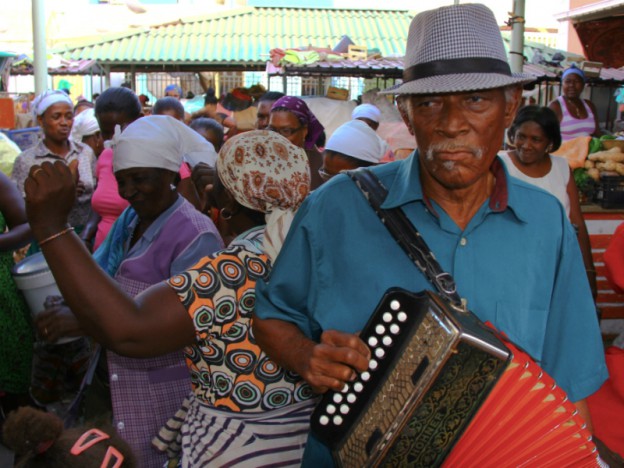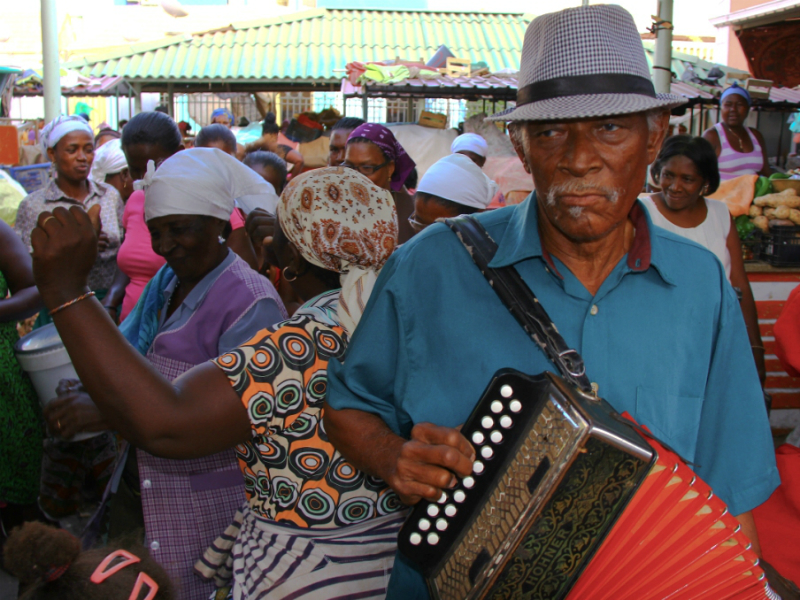In the early 50’s, Victor Tavares, better known as Bitori, embarked on a journey to the island of Sao Tomé & Principe, hoping to return to Cabo Verde with an accordion. It took the young man two years to save enough money to acquire his cherished instrument. It became Bitori’s most valued possession, which he mastered on his return to the island of Santiago.
Self taught, Bitori developed his own style, an infectious blaze, that quickly caught the attention of the older generation. He was asked to invigorate local festivities around Praia.
But not everybody welcomed the rural accordion-based sound of funaná. Initially banned, frowned upon as music of uneducated peasants, and deemed too “wild”, it was only following Cape Verde´s independence in 1975 that the sound began to spread. Still, traditional funaná wasn’t recorded until the late 90’s.
A young singer from Tarafal, Chando Graciosa, immediately felt drawn to Bitori’s talent, his raw passionate sound and honest lyrics reflecting the harsh reality of the working class. He eagerly approached Bitori to join forces and spread funaná beyond its rural roots, travelling and performing overseas.
While Bitori returned to Cabo Verde, Chando chose to settle in Rotterdam to pursue his career, but vowed to bring the master to Holland to create a record. In 1997, the time was ripe to immortalize the sound Bitori had shaped over the years. Build around a formidable rhythm section, formed of drummer Grace Evora and bass player Danilo Tavares, “Bitori Nha Bibinha” was recorded, a masterpiece which many consider to be the best funaná album ever made. That recording catapulted Chando Graciosa to stardom, making him Cabo Verde´s No.1 interpreter for Funana.
The success in Cabo Verde was phenomenal, and funaná rapidly gained the recognition it deserved, especially in urban dance clubs. Bitori’s songs quickly became standards, classics, known and loved throughout the country. But its success was limited solely to the Cabo Verdean islands, and never had the opportunity to travel beyond its confines — until now!
Analog Africa is planning a worldwide reissue of the legendary recording, which will be released in April of 2016. Additionally, the original musicians from these recordings will be reunite around Bitori and Chando Graciosa for an international tour which will take place in the summer of 2016.

